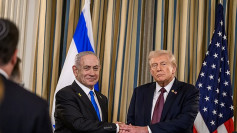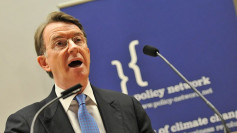Prince Andrew is once again at the center of the Jeffrey Epstein scandal after survivors told U.S. investigators that the Duke of York met additional alleged victims, prompting a congressional call for him to answer questions under oath. The new allegations come alongside the release of Virginia Giuffre's posthumous memoir and a formal letter from Democratic members of the House Oversight Committee urging Andrew Mountbatten Windsor to cooperate with their inquiry.
The letter, dated November 6, 2025, stated, "The Committee is seeking to uncover the identities of Mr Epstein's co-conspirators and enablers and to understand the full extent of his criminal operations." It requests that Andrew provide a transcribed interview to assist investigators. Committee members say that survivor testimonies indicate he may hold key information about Epstein's network.
The Oversight Committee's Democrats, including Representative Suhas Subramanyam, have said publicly that their meetings with survivors produced allegations that go beyond previously public claims. The committee's work, according to footage and statements released this week, includes catalogued witness accounts and documentation that could broaden the known scope of Epstein's associates.
Virginia Giuffre's memoir, Nobody's Girl: A Memoir of Surviving Abuse and Fighting for Justice, published posthumously in October 2025, has reignited attention on Epstein's network. The book contains detailed accounts of trafficking and explicitly names figures she alleged were tied to Epstein's circle. Oversight staff confirmed the memoir's testimony has informed portions of the committee's evidence review.
Giuffre's civil lawsuit against Andrew was settled in February 2022. Court records filed in the Southern District of New York confirm the case and its settlement. The filings remain publicly accessible and continue to serve as key reference material for investigators and journalists. Both legal teams have acknowledged that the settlement does not eliminate the possibility of future criminal exposure.
The allegations have renewed diplomatic strain between London and Washington. King Charles III previously stripped Andrew of his royal titles and directed him to leave his official residence following widespread public criticism. The monarchy's internal measures, however, have done little to ease international scrutiny. Lawmakers in both countries have said symbolic gestures do not substitute for legal accountability.
The U.S. congressional letter underscores the transatlantic scope of the investigation. Although American lawmakers lack subpoena power over a British royal residing outside U.S. jurisdiction, they have framed their appeal as a matter of moral duty and transparency. Activists and attorneys representing survivors have echoed that sentiment, arguing that Andrew's testimony could clarify unanswered questions about Epstein's wider network.
Committee staff have said multiple survivors provided firsthand accounts identifying "other victims" who met individuals within Epstein's circle, including those who encountered Andrew during the early 2000s. These accounts, now part of the committee's official record, have reinforced calls for greater openness from the British royal.






